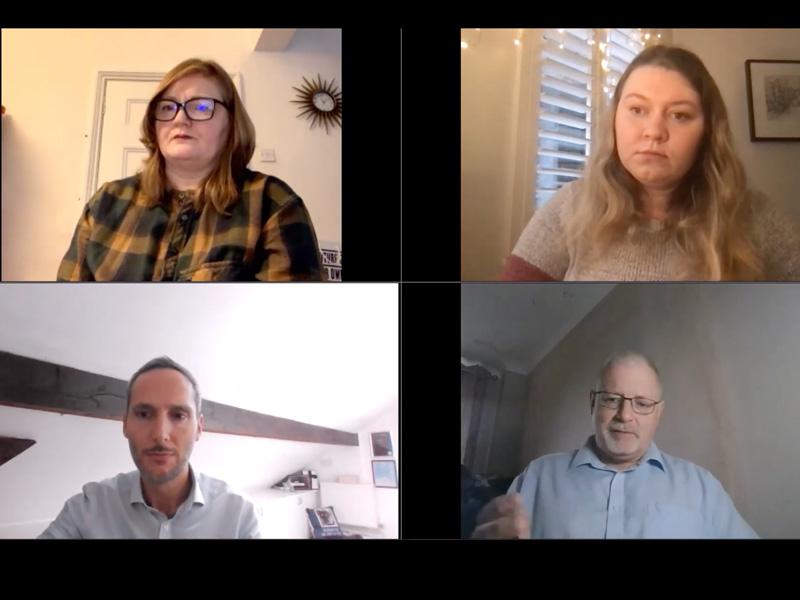Register for the on-demand webinar now.
Digital transformation can deliver personalised and flexible learning models, but universities must help drive the cultural change and ensure equal access for students.
A recent Times Higher Education webinar, held in collaboration with Amazon Web Services (AWS), brought together experts in higher education and industry to discuss the potential of personalised learning and how it can be reached through digital transformation.
Chair Julia Gilmore, branded content manager at Times Higher Education, said the legacy of the Covid-19 pandemic for the higher education sector was rapid digital transformation brought about by the necessity of online teaching and learning. She asked how institutions could ensure their digital education offering was inclusive, accessible, convenient and high quality for students of all backgrounds.
Annabel Kiernan, pro vice-chancellor (academic) at Staffordshire University, said it was important to assess the successes and challenges of the sector’s response during the pandemic to ensure a “consistently high-quality education offering”.
“As educators and as people who work in the sector, we understand that there are different learning needs and people wanting to self-pace and self-curate,” she said. “And one of the things that’s happened over time is there’s been a bit more one-size-fits-all in higher education because we’re teaching at scale. With lockdown, we moved back to a more step-on, step-off [approach], and people were able to make the connections in the ways that they needed or that best suited their learning styles.”
Alastair Irons, deputy vice-chancellor and deputy principal at Abertay University, agreed that the use of digital technology had brought “flexibility” to the student learning experience. However, he warned the transition to digital learning and teaching would only be a success if accessibility could be guaranteed for all.
“We must never forget the issues around digital poverty and making sure that everyone has the same opportunities to access technology now,” he said. “Digital poverty comes in a whole set of different ways, obviously around access to equipment and the internet, but also access to space and to be able to learn and do that quietly.”
Embracing digital tools could help “flip” the traditional model of higher education, where the method of delivery and time it takes are fixed but student outcomes vary, said Andrew Proctor, executive lead for UK education at AWS.
“The big-picture stuff around personalisation of learning is when that model starts to be flipped, such that it’s the outcome for a student that’s fixed and then the length of time and the method of learning is varied around their needs,” he said. “Previously, I don’t think we’ve been able to do any of those things, but I think that technology and things like the cloud are one of the things that enable it, simply because you can start to achieve scale.”
Irons highlighted how the move to online had provided an opportunity to explore new forms of assessment to better measure student understanding.
“How many times in your professional life do you sit down and do an exam? Never. But you might have a report to write, you might have resources to look at, you might have data to interpret. All of the things that we do in alternate assessments are actually developing a better professional skillset for students,” he said.
Staffordshire University organises days and projects to enhance digital skills for staff, students and the local community, said Kiernan. “We have to move into a space where digital is just part of the furniture of how you deliver,” she said. “You have to be able to take people with you, because it’s a culture change.”
The panel:
- Julia Gilmore, branded content manager, Times Higher Education (chair)
- Alastair Irons, deputy vice-chancellor and deputy principal, Abertay University
- Annabel Kiernan, pro vice-chancellor (academic), Staffordshire University
- Andrew Proctor, executive lead for UK education, Amazon Web Services
Register for the on-demand webinar now.
Find out more about Amazon Web Services.


comment